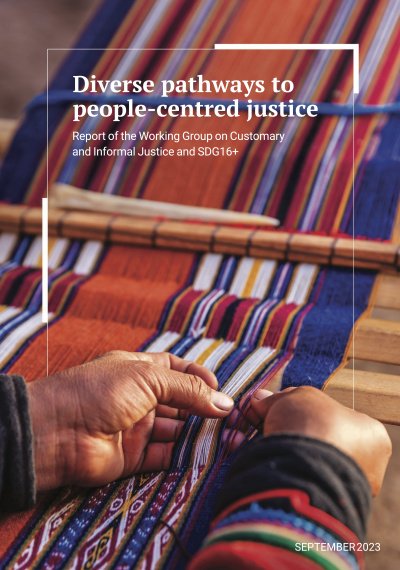Diverse pathways to people-centred justice
Joint publication
Globally, most people do not resort to formal justice systems to address their justice problems. Rather, they rely on diverse pathways to justice often referred to collectively as customary and informal justice. Delivering people-centred justice for all in line with Sustainable Development Goal 16 (peaceful, just, and inclusive societies) and related targets requires governments, development partners, and civil society to engage with the empirical reality of customary and informal justice, and factor this into justice delivery and programming.
Published by IDLO on behalf of the Working Group on Customary and Informal Justice and SDG16+, of which the Centre is a member, this report highlights the need for more people-centred approaches to justice. The report issues a call to action in the form of recommendations representing a new consensus on engagement with customary and informal justice.

